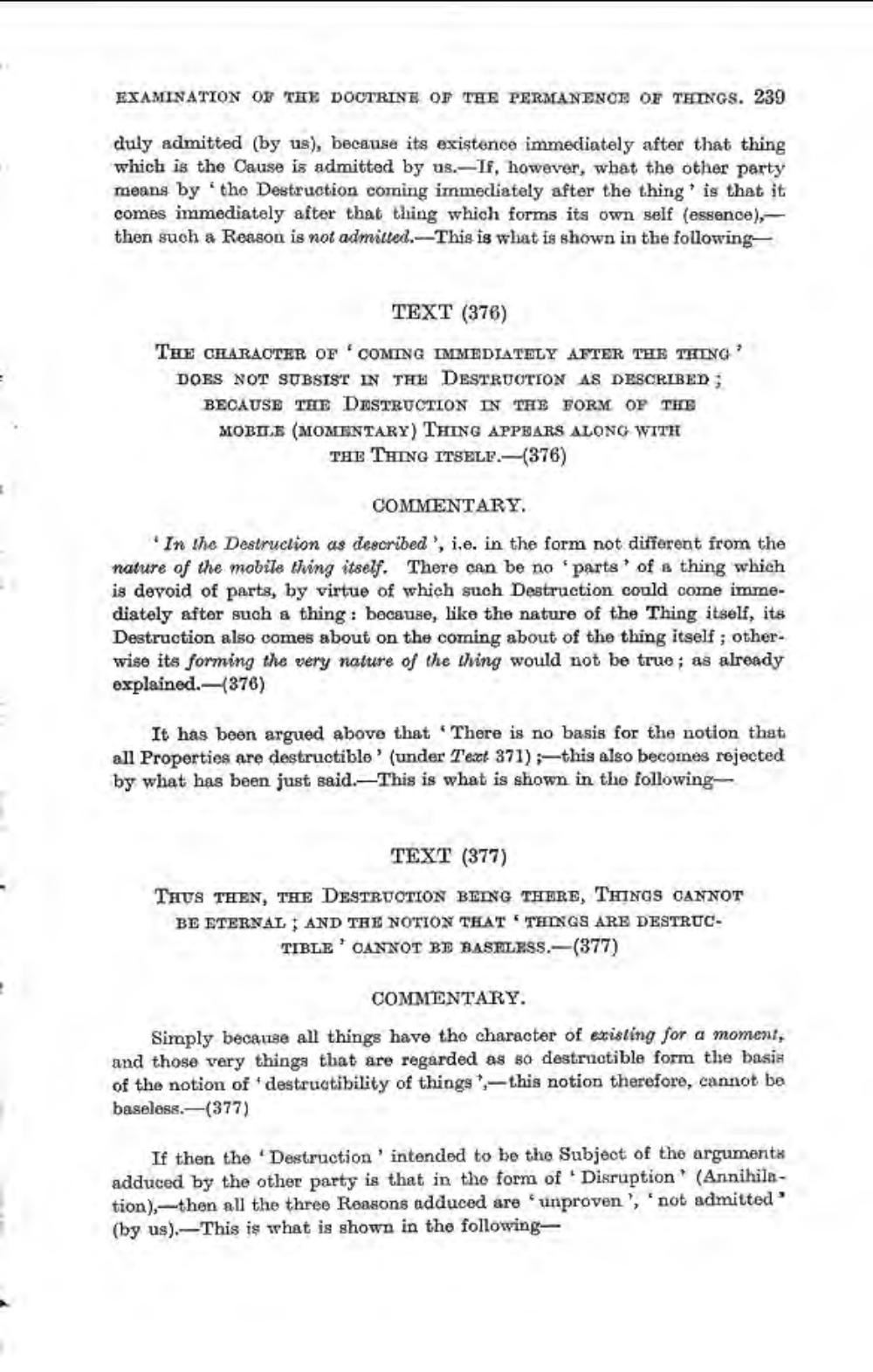________________
EXAMINATION OF THE DOCTRINE OF THE PERMANENCE OF THINGS. 239
duly admitted by us), because its existence immediately after that thing which is the Cause is admitted by us.-If, however, what the other party means by the Destruction coming immediately after the thing is that it comes immediately after that thing which forms its own self (essence), then such a Reason is not admitted.--This is what is shown in the following
TEXT (376)
THE CHARACTER OF COMING IMMEDIATELY AFTER THE THING DOES NOT SUBSIST IN THE DESTRUOTION AS DESCRIBED ; BECAUSE THIE DESTRUCTION IN THE FORM OF THE MOBILE (MOMENTARY) THING APPEARS ALONG WITH
THE THING ITSELF.—(376)
COMMENTARY.
In the Destruction as described', i.e. in the form not different from the nature of the mobile thing itself. There can be no 'parts of a thing which is devoid of parts, by virtue of which such Destruction could come immediately after such a thing because, like the nature of the Thing itself, its Destruction also comes about on the coming about of the thing itself; otherwise its forming the very nature of the thing would not be true; as already explained.-(376)
It has been argued above that There is no basis for the notion that all Properties are destructible' (under Text 371);this also becomes rejected by what has been just said. This is what is shown in the following
TEXT (377)
THUS THEN, THE DESTRUCTION BEING THERE, THINGS CANNOT BE ETERNAL AND THE NOTION THAT THINGS ARE DESTRUC
TIBLE CANNOT BE BASHLESS.-(377)
COMMENTARY.
Simply because all things have tho character of existing for a moment, and those very things that are regarded as so destructible form the basis of the notion of destructibility of things, this notion therefore, cannot be baseless.—(377)
If then the 'Destruction' intended to be the Subject of the argumenta adduced by the other party is that in the form of Disruption (Annihilation),then all the three Reasons adduced are unproven', 'not admitted" (by us). This is what is shown in the following




